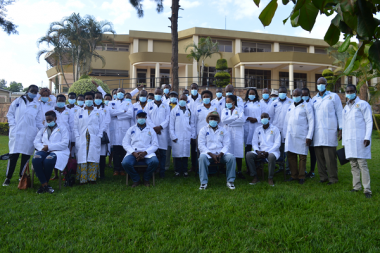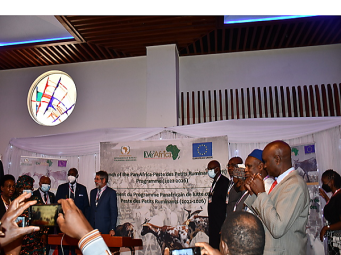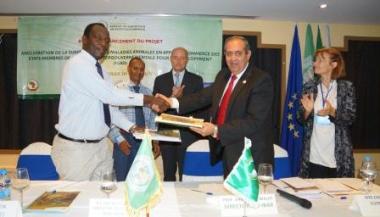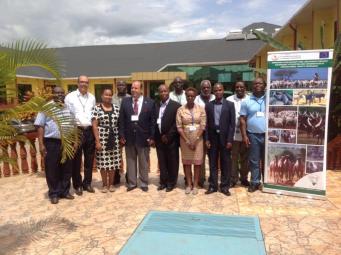Training of Trainers (ToT) Workshop on Utilization of Innovative Technologies for Value Addition and Feed Management in the Poultry Value Chain in West Africa

The West African poultry value chain can benefit from harnessing innovative and cost-efficient technologies to support structural transformations to deliver a wide range of outcomes including boost in production, trade, food safety improved competitiveness, among others. For instance, feed additives in poultry diets to promote growth and reproductive performance, are one such technology. Additionally, co-operative incubation, biogas production, egg sexing, integrating the supply chain with digital technology, artificial insemination, production sensors and smart cameras in chicken houses are all technologies worth introducing to poultry farmers.
In line with this, a Training of Trainers (ToT) Workshop on Utilization of Innovative Technologies for Value Addition and Feed Management in the Poultry Value Chain in West Africa was held at the Miklin Hotel, East Legon in Accra Ghana from 15th to 19th March 2021. The workshop was organised by the African Union- Interafrican Bureau for Animal Resources (AU-IBAR) under its Live2Africa Project with funding from the European Union (EU) and was attended by forty-two (42) participants drawn from the entire poultry value chain in Ghana. The objective of the workshop was to identify practical innovative technologies in the poultry value chain and facilitate their adoption and uptake by stakeholders in Ghana. Specifically, it exposed participants to modern appropriate, simple, cost-effective, and gender-sensitive technologies and innovations and capacitated them to apply these in poultry feeding and along the value chain.
Key activities during the training included presentations, discussion and farm/industrial visits on utilization of technologies for value-addition and feed formulation and management in the poultry value chain in Ghana and West Africa. An important outcome of the workshop included the formation of a steering committee of the poultry value chain to spearhead the development of a Master Plan for the Poultry Value Chain in West Africa using Ghana as a model.
Additionally, workshop participants embarked on a field visit to three poultry firms (2 in Accra, Greater Accra Region and 1 in Suhum, Eastern Region) on the fourth day of the Workshop to get acquainted with technology innovations for uptake and utilization in the local poultry value chain.
Recommendations made at the end of the workshop included:
1. need for government to financially support research institutions to bring out innovative technologies and improved breeds
2. need for strong and effective stakeholder partnerships and associations in the poultry sector in the countries across the West African region to help engage policy makers.,
3. need for committed policy actions to regulate local production of day-old chicks, especially in the face of recent proliferation of small-scale on-farm hatcheries.
4. that farmers, especially large-scale producers should employ proper debt management strategies to avoid defaulting to boost lender/investor confidence in the sector.
5. the need for good linkage between research, academia and industry;
6. adoption of software technologies to analyse various raw materials in use in the poultry value chain;
7. adoption of housing technologies, modern equipment (nipple drinkers, chain feeders, cages, disease prevention and control (vaccination, biosecurity, medication);
8. emphasizing efficiency at all stages of production and processing as well as adopting out-grower schemes essential for cost-efficient production;
9. increase use of local feed ingredients in the promotion of innovative feed technologies given their medicinal and flavour imparting technologies.
10. need to upscale tried and tested technologies and innovations that are working well in industry.
Participants expressed their sincere appreciation to the AU-IBAR and the European Union (EU) for organising and sponsoring such an important workshop, respectively, as it provided them an opportunity to be educated on innovative technologies in the poultry value chain which will make them more efficient in their operations and enhance strong collaboration between stakeholder institutions.




